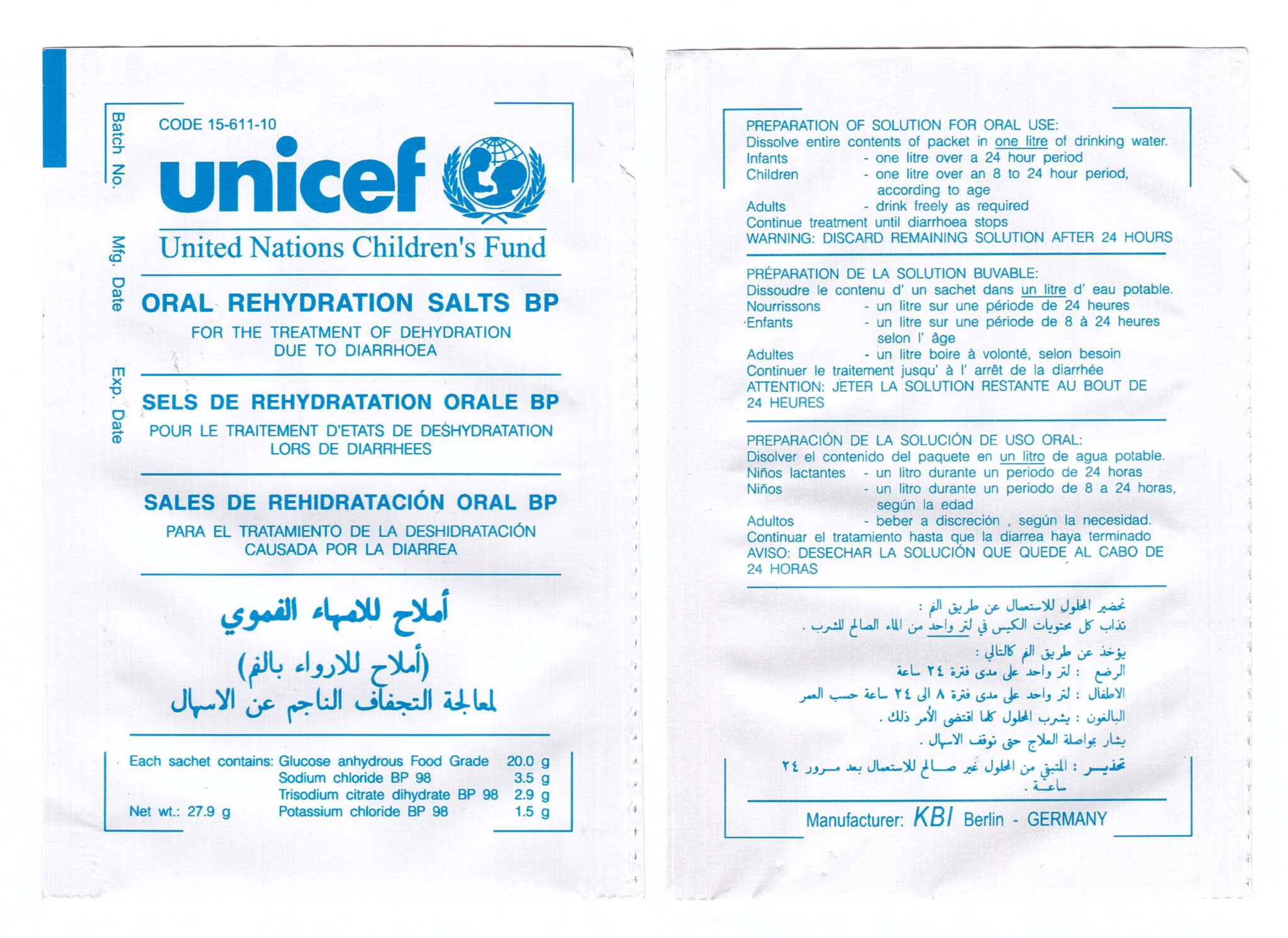ORS Use in Uganda

Oral rehydration solution distributed by UNICEF | Olle Gustavsson via Wikimedia Commons
Study Context
Diarrheal diseases kill roughly 700,000 children a year, almost all in poor communities. Oral rehydration solution (ORS) is a very low-cost means to prevent most of these deaths yet usage rates remain low in many poor communities. Most caretakers of children with diarrhea in low-income countries seek care in the private sector where they are required to pay for ORS.
Study Design
This project tested whether providing ORS packets to community health workers (CHW) and asking them to distribute the packets to parents before a child has diarrhea can substantially increase ORS usage. Because CHWs already exist in most rural Ugandan communities and ORS is so inexpensive, if this intervention is effective it can scale up rapidly. In this study, researchers randomized CHWs to one of four methods of ORS distribution: (1) free delivery of ORS prior to illness (free and convenient); (2) home sales of ORS prior to illness (convenient only); (3) free ORS upon retrieval using voucher (free only); and (4) status quo CHW distribution, where ORS is sold and not delivered (control).
Results and Policy Lessons
Results from this study found that free treatment coupled with delivery increased the share of ORS treated cases by 36%, and that this intervention was extremely cost effective. Researchers also found that while price is an important barrier to ORS use in Uganda, convenience was not a key barrier.




